The Story of the Yellow Vest
You Matter
On the back of my home office chair is a bright cloth object hanging halfway to the ground. It’s evening as darkness fills the window from the outside when my daughter walks in and asks, “What is that?”
“It’s a vest,” I say while working on my computer.
“How did you get it?” she asks because she has never seen it before.
I open my mouth to answer but before speaking I catch myself. After a moment of thought, I say, “You will have to read the story.” I know she won’t understand otherwise. Below is the story of the yellow vest.
This afternoon, from my home office, I work later than I have to, on projects that don’t need doing, and then I binge watch news and commentary videos online. The stories are a mix of bitter politics, violence in the streets, and negative social commentary. Truly depressing stuff. Sensing I’m on the verge of despair I sit back and decide I need to pull myself away from more videos and go for a walk.
Walking has become an important ritual for me. I use these outings to get some exercise but mostly to clear my mind. Sometimes I’ll listen to books on tape or music but most of the time I just walk and think. I started walking my favorite route several months ago shortly after the COVID-19 shutdown began. I live in the Washington D.C. area and due to COVID and the recent turmoil in the news people have cautioned me, “It’s not safe to go out walking.” Some have even suggested that I carry a weapon with me just in case, but that has never appealed to me.
I have become a regular on the road and met many of my neighbors on these walks. I’m sure it’s partly because I make a point of waving to everyone who drives by. I do this because I know it personally makes me feel good when pedestrians wave to me, but it’s also so I can get a wave back. Despite my apparent need for attention, I believe it makes a community feel closer and more welcoming when people wave to each other and these days we can all use that bit of friendliness.
Looking outside my home office window I see it’s getting late and clouds are rolling in, so I pause to think about it. Tonight, however, I have a lot on my mind and I really need the walk. Acknowledging my recklessness, I dismiss my caution and decide to go for it. My favorite walking route takes me about an hour and includes a tree-lined road that provides shade most of the way making it more pleasant on hot summer days. The only downside of this section of the walk is that there are no sidewalks, and the heavily wooded brush often comes right up to the edge of the road. I’ve always had a small voice of caution bouncing around in my head ever since reading Steven King’s book On Writing where he describes how he was nearly killed on one of his habitual nightly walks after being struck by a van. During the day the road is not very busy, but in the evening traffic picks up as people return home for work. My typical safety strategy is to listen for vehicles ahead and behind me, and get off the road whenever I hear one coming. In some spots, where there is no shoulder, I must cross the road to get clear of traffic.
Looking up I notice the clouds making all my surroundings a little darker. With a bit more caution I continue walking and quickly get to a portion of the road which is particularly well covered by trees. This is usually one of my favorite spots during hot days due to the increased shade but this evening the shade will turn to darkness faster than the rest of the route and it’s not quite as pleasant. The extra vegetation growing on the side of the road also means it has a very tight shoulder, and in some places, none at all.
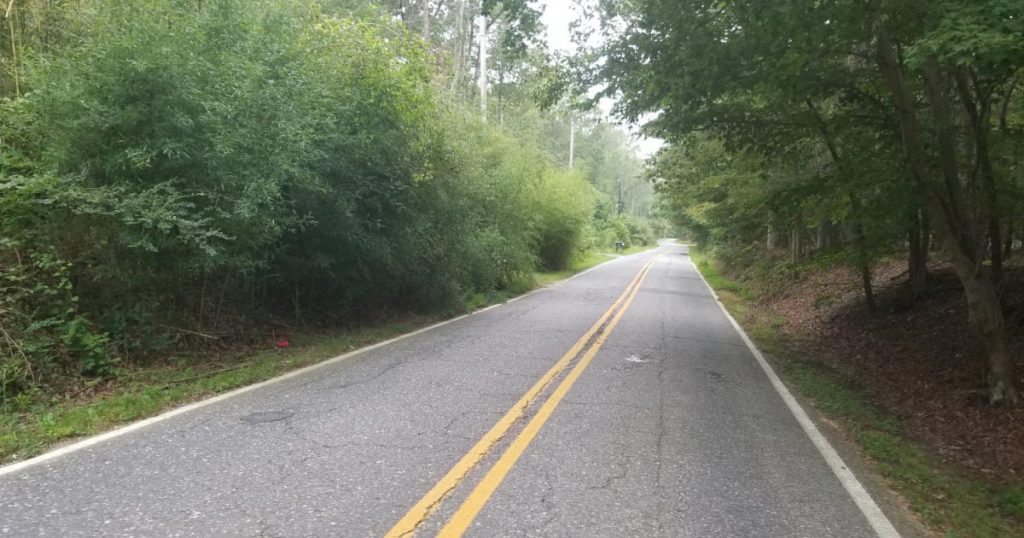
Walking into this area I hear a sizable truck behind me on the opposite side of the road. I turn and see a large blue garbage truck. As is my routine, I get off the road and onto the rather small shoulder. It’s not ideal but the garbage truck will soon pass and I’ll be on my way like dozens of times before. This time, however, the dump truck slows down. Thinking the driver is just being cautious because he is in a wide-load vehicle I give him a smile and a wave to motion him to drive by. But he doesn’t drive by. In fact, he goes even slower. I use my arms in a larger waving motion but instead of speeding up, he slows to a creep until he comes to a complete stop. As this happens I faintly hear a car in front of me too. I’m already in the brush on the side of the road and my vision is partially blocked by bushes and trees. Peering through the leaves, in the distance, I can see the headlights of another vehicle coming at me on my side of the road. Frustrated, and a little worried, I make bigger windmilling arms to motion the truck on and mouth the word “GO” several times over.
The garbage truck driver then turns on his flashers. Puzzled, not knowing what the driver is doing, I watch as he reaches for something in the cab of his truck. I didn’t expect this at all. With a car bearing down on me and this big garbage truck blocking me from crossing to the safer side of the road, and now the driver reaching for something in the cab of his truck, I start to think I may be in trouble. At this point, instinct dictates my strategy, and I decide to first climb as high on the shoulder of the road as I can to let the oncoming vehicle pass, then deal with the driver of the garbage truck.
However, the oncoming vehicle apparently sees the flashing lights of the truck and slows down to a safe speed as it passes close to me. Relieved that I no longer have to flatten myself into the brambles, I turn my attention to the garbage truck. The driver of the truck motions me over. Apprehensively I go. As I approach I squint my eyes to see the driver of the truck, sitting in a cab well above me in dimming light, I see that he’s a young black man in his mid 20’s with long hair. He is reaching out the window holding a florescent yellow piece of clothing in his hand. Realizing he is likely not a threat and that he is clearly trying to get my attention, I walk up to the garbage truck, still a bit apprehensive of what will happen next.
I open my mouth to speak not quite knowing what will come out when I do, but before I have a chance he reaches down to me with what is now distinctly a bright yellow reflective safety vest in his hand. I know this because he is wearing one just like it as he sits in the cab of his truck. With no judgment or frustration in his voice, he simply says “Take it.” Standing there, shocked, I reflectively reach up. For a split second, I think I should politely thank him and decline. However, something in his voice makes it clear this was not a suggestion. He is not just being nice, there is another reason for his gift, much harder to interpret. Perhaps duty, or compassion, or even pity. I can’t tell, but I know turning his offer away would be an insult after he showed so much concern for my safety. Even more important was that at this moment I feel something more is happening. I accept his offer, saying “thank you” with a bit of guilt and shame in my gut because I recognize that to do otherwise would be akin to saying “no thanks, I want to remain an idiot and continue putting my life needlessly at risk.”
As soon as I take the yellow vest he drives away without another word. Watching the departing vehicle, I realize it’s not a garbage truck after all. It’s a recycling truck. For some reason, the encounter now makes a little more sense, who else would recognize when something needs to be saved.
I have seen people on this same road at night and nearly hit them because there is absolutely no way to see them in the dark. My typical thought is, “What an idiot, walking down an unlit street on the side of the road at night.” As it turns out, I should have been more understanding. Even more humbling is the fact it never even occurred to me that I might have a duty to keep them safe. I never once considered stopping my car and putting my flashers on to ensure oncoming drivers saw them. It definitely never crossed my mind to prepare for events like this by having an extra neon yellow reflective vest available to give to a total stranger just in case I came across someone walking on a poorly lit street.
He probably didn’t know I was out for a leisurely evening walk close to my home. He clearly gave me the benefit of the doubt while knowing any number of circumstances outside my control, or inside my control, as was the case, could have put me on the side of that road in the dark. My calculated, poor decision-making put my own life at risk as if it didn’t matter, while his instinctive, uncalculated, and spur-of-the-moment actions spoke louder than words– and provided a clear response to my recklessness.
“You matter.”
Hi, this is Mike McPherson the author of this story. If you like this story please read a bit further. We are living in a time when many are experiencing a crisis of the soul. They have either forgotten or have never learned important life lessons and they may be isolated and alone getting the vast majority of their interaction through the internet and social media. Social media is a powerful way of communicating but unfortunately, we tend to show only the sensational stuff, pictures of good times and successes. I like to see these too but when all we see is people living the high life we can’t help but compare ourselves to them, or at least, what we see of them. Our mundane and problematic life seems inferior and even pathetic. For some, especially young people, this is very dangerous and can contribute to serious depression. I believe we can help change this.
Like you, I have learned a lot of hard lessons in life and paid a lot in stupid tax. Some people say they have no regrets. Not me, I have plenty. I don’t want to repeat them or have others make the same mistakes. As humans we are social creatures, we are meant to sit by the fire and share stories of our triumphs and failures as a way of passing down our lessons learned to make the next generation smarter and more prepared. As we get older we have an obligation to pass down our stories to the next generation and they have an obligation to learn from them. This is the fundamental foundation of all human societies since the first campfire.
By sharing our stories we can do something to help those who are in crisis, perhaps it’s a small thing, but for the one person that needs to hear that story, it can be life-saving. Through a real story, from a real person, they can know they’re not alone and they can learn from our mistakes. It is through these stories we make meaningful connections to other people.
If you agree with the last few paragraphs and would like to see more stories like this please like this story, share it with your friends, and follow me on Facebook at facebook.com/MikeMonFB. Make sure to add your comments and share similar lessons learned this story may have inspired you to remember. But don’t stop there, please consider telling your own story.
For more stories like this please visit lifetrec.com/articles.
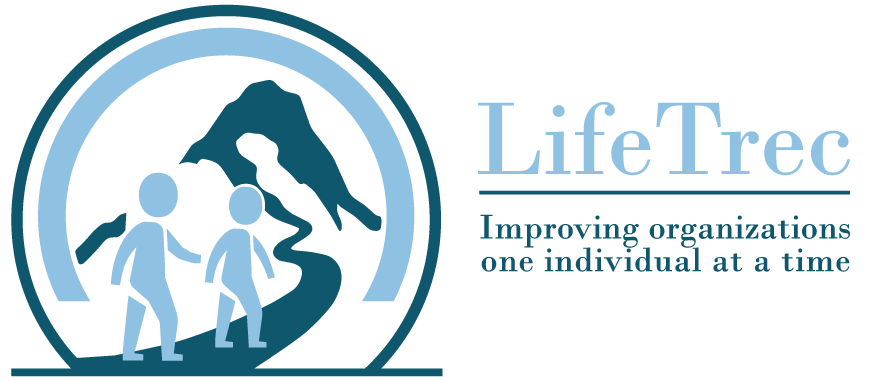



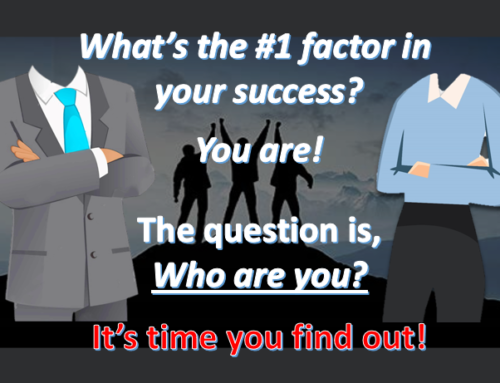
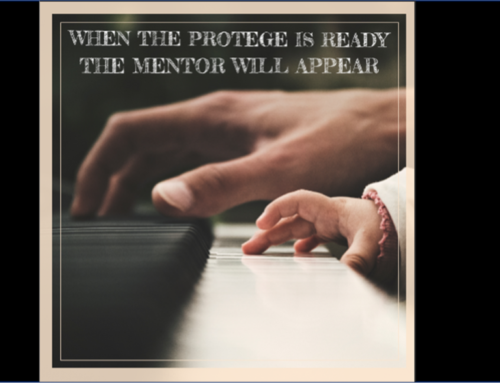
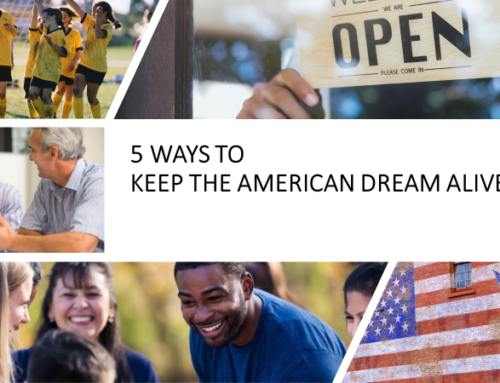





Get Social